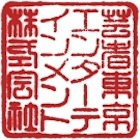Program
Scala Conference in Japan 2013
Saturday 2nd March 2013
Tokyo Institute of Technology - Ookayama Campus
(Tokyo Tech Front 1F - Kuramae Hall, Centennial Hall 3F - Ferrite Memorial Hall)
Click here for the PDF version of the timetable
Slide decks now available.
| Time | A (Kuramae Hall) | B (Ferrite Memorial Hall) |
|---|---|---|
| 10:00 - 10:10 |
Opening Speech Speaker: Kota Mizushima (Scala Conference in Japan Committee) |
- |
| 10:10 - 10:50 |
「Up up and Out: Scaling Software with Akka」 Speaker: Jonas Bonér(Typesafe) [Slide] |
- |
| 10:50 - 11:00 |
Break |
|
| 11:00 - 12:10 |
「Geisha Tokyo and Scala - From 'Omiseya-san' to 'Brain Training Quest'」 Speaker: Yoshiaki Takeshita(Geisha Tokyo Entertainment) [Slide] |
「Data Stream Processing and Analysis with Akka」 Speaker: Roman Y. Shtykh, Mitsuharu Makita (CyberAgent) [Slide] |
|
「Scala in Model-Driven development for Apparel Cloud Platform」 Speaker: Tomoharu Asami(Everforth) [Slide] |
「Scala in our BRMS」 Speaker: Teppei Tosa (Mitsubishi UFJ Information Technology) [Slide] |
|
| 12:10 - 12:30 | Lunch preparation | - |
| 12:30 - 13:40 | Lunch time (Lightning talks) Xitrum - a Scala framework inspired by Rails Speaker:Ngoc Dao [Slide] How to send a pull req Speaker:Eugene Yokota [Slide] Scala Case Study Speaker:Kenichi Masuko(System Art) [Slide] Ascii Art in Scala Speaker:Chris Birchall [Slide] Scala driven engineering life Speaker:Yusuke Kuoka [Slide] |
- |
| 13:40 - 14:50 |
「Coding in Style」 Speaker: Joshua Suereth(Typesafe) [Slide] |
Recruiting Sessions Speaker: sponsors |
|
「Scala ActiveRecord - The elegant ORM library for Scala」 Speaker: Yuki Yoshinoya (Advanced Soft Engineering) [Slide] |
||
| 14:50 - 15:10 |
Break |
|
| 15:10 - 16:20 |
「Effective Actors」 Speaker: Jamie Allen(Typesafe) [Slide] |
「Composable Action Composition with Stackable Trait in Play 2.1」 Speaker: Manabu Nakamura(Tech to Value) [Slide] 「Scala in DWANGO "niconico Android"」 Speaker: Tetsushi Goto (DWANGO) [Slide] 「How we write and use Scala libraries not to cry」 Speaker: Toshiyuki Takahashi(M3) [Slide] 「The Tech Behind Otome Games」 Speaker: Daisuke Kasuya(Furyu) [Slide] |
|
「Scala as "Better Java" from object-oriented viewpoint」 Speaker: Shinya Mochizuki [Slide] |
||
| 16:20 - 16:40 |
Break |
|
| 16:40 - 17:50 |
「Scala frustrations: A case study of Play2 system development」 Speaker: Naoki Takezoe (NTT Data Intellilink) [Slide] |
「Social app development with 2 month study of Scala+Play!」 Speaker: Junichi Okamura (Shanon) [Slide] |
|
「Play Framework - The modern web framework that packs a punch」 Speaker: James Roper (Typesafe) [Slide] [Code] |
「Scala Bot for Small Business」 Speaker: Yung-Luen Lan [Slide] |
|
| 17:50 - 18:00 |
Break |
|
| 18:00 - 18:30 |
Ending |
- |
The after party will start at 19:30. Check here in detail.
Jonas Bonér (Typesafe CTO, Akka developer) |
|
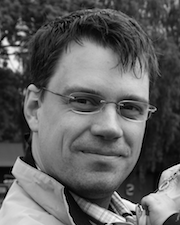
|
Up up and Out: Scaling Software with Akka |
|
We believe that one should never have to choose between productivity and scalability, which has been the case with the traditional approaches to concurrency and distribution. The cause of that has been the wrong tools and the wrong layer of abstraction and Akka is here to change that. Akka is a unified runtime and programming model for scaling both UP (utilizing multi-core processors) and OUT (utilizing the grid/cloud). With Akka 2 this will be taken to a whole new level with its "Distributed by Design". Akka 2 provides location transparency by abstracting away both these tangents of scalability by turning them into operations and configuration task. This gives Akka runtime the freedom to do adaptive automatic load-balancing, cluster rebalancing, replication and partitioning. Akka is available at http://akka.io (under Apache 2 license).
Profile: |
|
James Roper (Typesafe, Play core member) |
|
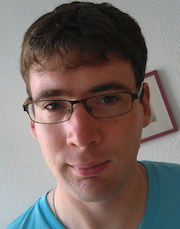
|
Play Framework - The modern web framework that packs a punch |
|
As the focus of modern web applications shifts to be more and more about providing rich user experiences, and hardware evolves not to be faster but to provide more and more CPU cores, many web frameworks have been left behind, unable to meet the demands of a modern web application. Play Framework is the answer to these new demands, providing first class support for current web standards such as WebSockets and technologies such as LESS, requireJS and CoffeeScript, while providing the power of asynchronous IO and parallel processing using simple and concise syntax on the backend. This presentation will give you a taste of just how simple Play Framework makes modern web application development, showcasing support for the latest technologies in a development environment that is powerful and productive.
Profile: |
|
Joshua Suereth (Typesafe, Scala team member, author of Scala in Depth) |
|
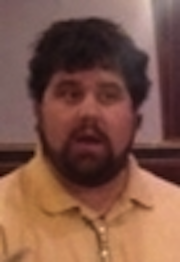
|
Coding in Style |
|
Scala is an expressive language, but can be hard to grasp when coming from imperative languages. The key is understanding what expression is in Scala, and how to adapt code to be more expressive. This talk covers the 'zen' of Scala development, as well as what changes the new features in Scala 2.10 bring. In particular, we cover:
Profile: |
|
Jamie Allen (Typesafe Consultant) |
|

|
Effective Actors |
|
There are several frameworks across languages and platforms of Actors, including Erlang, Fantom, Java and Scala. As developers have built systems using these frameworks, patterns of use have begun to emerge that represent "Best Practices" for actor-based systems. In this talk, we will review such patterns, focusing primarily on how to implement them using the Akka framework and Scala.
Profile: |
|
Yoshiaki Takeshita (Geisha Tokyo Entertainment, Inc.) |
|
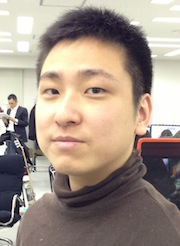
|
Geisha Tokyo and Scala - From 'Omiseya-san' to 'Brain Training Quest' |
|
Beginning with the development of 'Omiseya-san for GREE', one of the most popular social games implemented in Scala in Japan, we have been using Scala as our main development language for the last 3 years. We present our reasons for choosing Scala, our experiences integrating Scala into our development process, and an introduction of various technologies that we have found useful. Hopefully our know-how, developed over the last 3 years of running Scala-based services in production, can be of use to anybody planning to build products and services with Scala in the future.
Profile: |
|
Roman Y. Shtykh, Mitsuharu Makita (CyberAgent Inc. Ameba Technology Laboratory) |
|
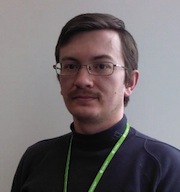 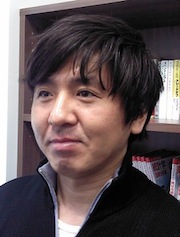
|
Data Stream Processing and Analysis with Akka |
|
In this presentation we will share our experience of building a distributed platform for event data stream processing and analysis with Akka 2.0. From the perspective of a Java developer, we will explain the role of Akka framework in our platform, why it is chosen, and how it helps achieving fault-tolerance and scalability when working with large volumes of data.
Profile:
Roman Y. Shtykh
Mitsuharu Makita |
|
Tomoharu Asami (Everforth Co., Ltd.) |
|

|
Scala in Model-Driven development for Apparel Cloud Platform |
|
We develops a cloud platform for Apparel industry using Model-driven development. In the development, we develops one model compiler and two server-side frameworks using Scala. In addition, we uses various Scala-based OSS products, such as play-framework and Squeryl. In this session, I talks abount programming strategy and tips for Scala, which are based on our experiences in the development.
Profile: |
|
Teppei Tosa (Mitsubishi UFJ Information Technology, Ltd.) |
|
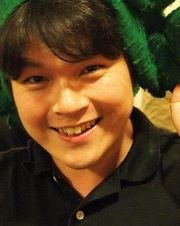
|
Scala in our BRMS |
|
We are developing our original BRMS(Business Rule Management System). Our BRMS has the original feature that can execute logic from not only conditions but also expected results. Tha main programing language for the BRMS is Scala. I am going to introduce how we use Scala's feature and how we evaluate Scala.
Profile: |
|
Yuki Yoshinoya (Advanced Soft Engineering Co., Ltd.) |
|
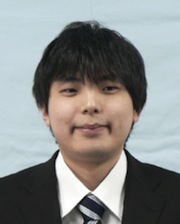
|
Scala ActiveRecord - The elegant ORM library for Scala |
|
Scala Activerecord is an ORM library for Scala (under MIT license).
Profile: |
|
Shinya Mochizuki |
|

|
Scala as "Better Java" from object-oriented viewpoint |
|
Scala is static typed programming language supports functional programming is based on object-oriented. We often talked about Scala from functional language viewpoint, but object-oriented viewpoint is not. In this talk, I will explain improvement by comparison between Scala and Java as object-oriented language.
Profile: |
|
Manabu Nakamura (Tech to Value Co.,Ltd.) |
|
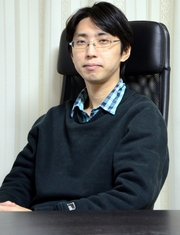
|
Composable Action Composition with Stackable Trait in Play 2.1 |
|
Play 2.x enables you to readily add features to your code by composing Actions. Doing it the usual way, however, you have to write a lot of boilerplate code when you want to reconfigure composed actions, because the order of composition is fixed from the start.
Profile: | |
Tetsushi Goto (DWANGO Co., Ltd.) |
|
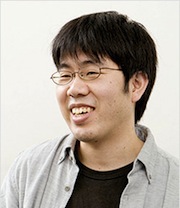
|
Scala in DWANGO "niconico Android" |
|
Android application for niconico:
Profile: | |
Toshiyuki Takahashi (M3, Inc.) |
|

|
How we write and use Scala libraries not to cry |
|
We, M3 engineering group is using Scala as one of the programming Language. We have launched many serivces and in-house systems with various Scala libraries such as Scalatra, Unfiltered and Playframework. Some of them are avalilable under the open source licences. With the increase of libraries, we are often in trouble with management and maintenance of them. The problem occurs with any programming language, but we also have to be careful with the problems that are unique to Scala. I will organize the answers and work-arounds to get along with Scala libraries from the aspects of both a user and an author. Let's think together about what we can do to keep us from unnecessary troubles and create the better ecosystem for Scala.
Profile: |
|
Daisuke Kasuya (FURYU CORPORATION) |
|
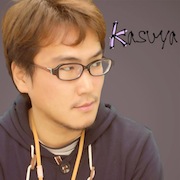
|
The Tech Behind Otome Games |
|
Last year we released three social 'otome games' for female players, developed using Play! 2 and Scala. Starting from a point where most of the development team had zero Scala experience, and learning as we went along, we managed to successfully release our products. This presentation will be reasonably non-technical, and will discuss the various techniques we used to learn Scala as a team and bring our skills up to production level.
Profile: |
|
Naoki Takezoe (NTT Data Intellilink Corporation) |
|
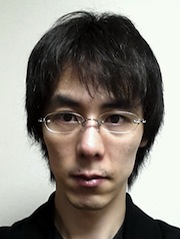
|
Scala frustrations: A case study of Play2 system development |
|
Our team began to test Scala two years ago, and now it becomes a main development language for our business. We wrote a book "PROGRAMMER'S RECiPE for Scala" (Scala逆引きレシピ) based on our experiences.
Profile: |
|
Junichi Okamura (Shanon, Inc.) |
|
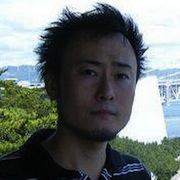
|
Social app development with 2 month study of Scala+Play! |
|
The experiments of BtoB social app development with Scala+Play by an ex-Java engineer only in 2 month study. Advantages of Scala for Java engineers , code porting issues, learning cost, effective points for enterprise software, etc.
Profile: |
|
Yung-Luen Lan |
|

|
Scala Bot for Small Business |
|
For small business, scalability is not the only issue to address. Instead, making daily jobs fun and easy by scripting is important in most cases. Scala is not well known as a scripting language because of the JVM boot-time overhead. In this talk, I will share my experiences on how to build a robot in scala to automate tasks in our company.
Profile: |
|
After party
At Casa Giardino.
| Time | 19:30 - 21:30 |
| Place |
Jiyuugaoka Casa Giardino Google Map |
| Price | 5,000 yen |
Scala Hack-a-thon
Event Info
The Scala Hack-a-thon is a fun and relaxing wind-down event to be held the day after the conference. The event will include:
- Scala Programming Contest
- Talks by the Attendees
Everybody is welcome to attend this event, even those who couldn't attend Scala Conference in Japan 2013. We're aiming for a relaxed, no-pressure day of programming fun, so feel free to attend, no matter what your proficiency with Scala. All desks in the venue have electrical sockets and WiFi is available.
| Date Time | Sunday 3rd March 2013 10:00 - 18:10 |
| Venue |
Tokyo Institute of Technology - Ookayama Campus See in detail Place(Main Building H101 Lecture Room)
The room is a little hard to find, so we will put signs up to guide you. |
| Attendees | 100 |
| Price | Free (Registration via Doorkeeper is required) |
Timetable (tentative)
| Date Time | H101 |
|---|---|
| 10:00 - 10:20 |
Explanation about venue (by Kota Mizushima) |
| 10:20 - 11:00 |
Coding |
| 11:00 - 11:20 |
Break |
| 11:20 - 12:00 |
Coding |
| 12:00 - 13:30 | Lunch Break |
| 13:30 - 13:50 |
Talk 1 (tentative) |
| 13:50 - 14:00 |
Break |
| 14:00 - 14:40 |
Coding |
| 14:40 - 15:00 |
Registration for Scala Programming Contest (about 10 people) |
| 15:00 - 15:20 |
Talk 2 (tentative) |
| 15:20 - 15:50 |
Coding |
| 15:50 - 16:00 |
Break |
| 16:00 - 17:10 |
Programming Contest - Demos and/or Presentations (about 5 minutes per person) |
| 17:10 - 17:40 |
Programming Contest - Judging |
| 17:40 - 18:00 |
Programming Contest - Results |
| 18:00 - 18:10 |
Closing |
Notes
- All desks in the venue have electrical sockets and WiFi is available.
- Lunch will NOT be provided, so please bring something with you.
- You can come and go as you please, even outside of break times.
- The timetable may be changed without notice
About the Scala Programming Contest
- The registration for the contest will be done on the day.
- Advance preparation for the contest is recommended.
- Using Typesafe Stack (Scala, Akka, Play 2) is recommended.
- Any kind of Scala program is OK. For example stand-alone programs, simple web services, or libraries are all fine.
- Use of third-party libraries is not a problem.
- There is no limit to the number of lines.
- Judging will be done by the chairman, guest speakers, etc.

